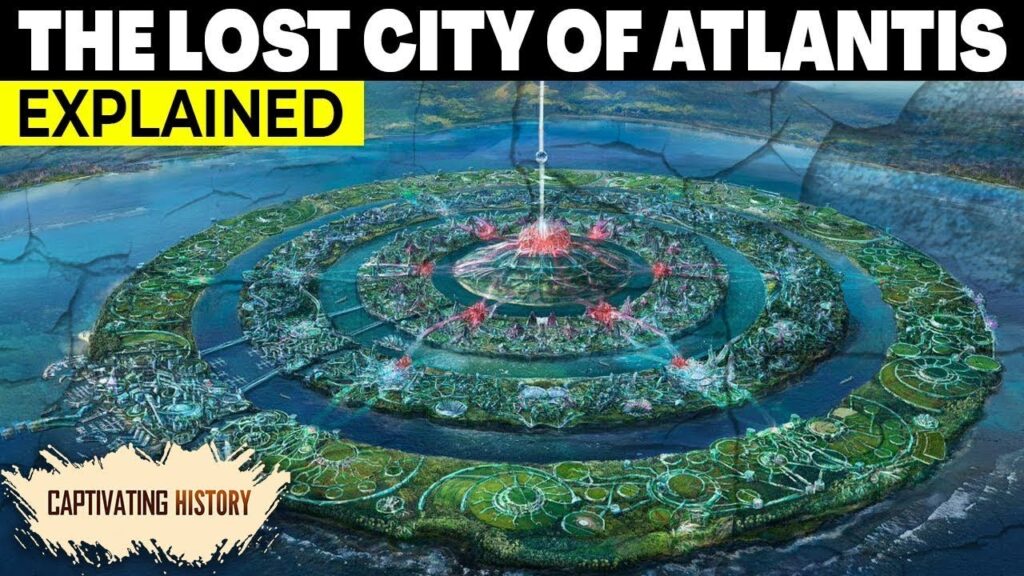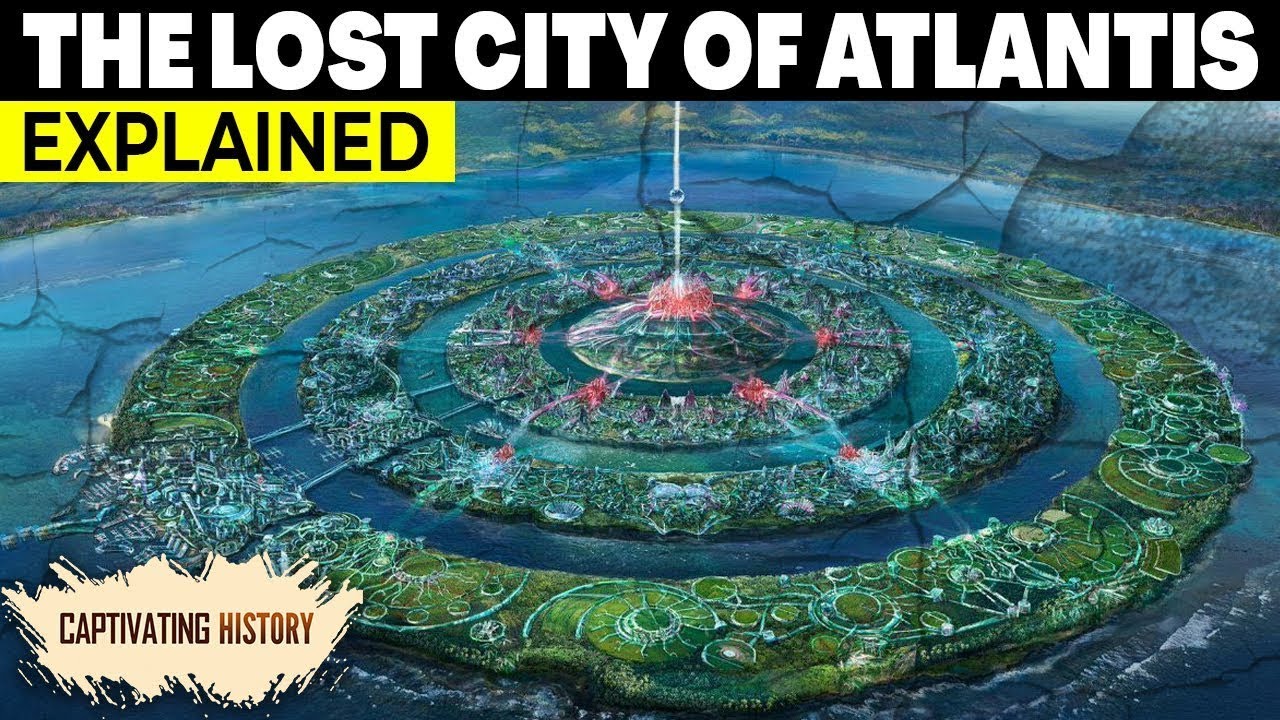
Atlantis Info: Unveiling the Mysteries of the Lost City
The allure of Atlantis continues to captivate imaginations worldwide. For centuries, the legend of this advanced island civilization, swallowed by the sea, has fueled countless books, films, and expeditions. But what is the real story behind Atlantis? This comprehensive guide delves into the heart of atlantis info, exploring the historical, mythological, and scientific perspectives surrounding this enigmatic realm. We aim to provide you with the most complete and trustworthy atlantis info available, separating fact from fiction and offering a balanced view of the evidence and theories.
This article is your one-stop resource for understanding Atlantis, from Plato’s initial descriptions to modern-day expeditions searching for its remnants. We’ll examine the evidence, explore the various theories about its location and fate, and consider the cultural impact of this enduring legend. You’ll gain a deep understanding of the atlantis info landscape, equipping you to critically evaluate claims and form your own informed opinions.
The Origin of Atlantis: Plato’s Account
The primary source of atlantis info is the philosopher Plato. In his dialogues Timaeus and Critias, written around 360 BC, he introduces Atlantis as a powerful naval confederation that challenged ancient Athens. According to Plato, Atlantis was located “beyond the Pillars of Hercules” (generally believed to be the Strait of Gibraltar) and was larger than Libya and Asia Minor combined.
Plato describes Atlantis as a utopian society with advanced technology and a highly organized political system. He details their impressive infrastructure, including canals, temples, and concentric rings of land and water. The Atlanteans were said to be skilled in agriculture, engineering, and warfare. However, their ambition and greed eventually led to their downfall. As Plato wrote, they attempted to conquer Athens but were defeated. Following this defeat, Atlantis was struck by earthquakes and floods, and the entire island was submerged beneath the sea.
Interpreting Plato’s Story
The question of whether Plato intended his story of Atlantis to be taken literally is a matter of ongoing debate. Some scholars believe that Atlantis was a purely allegorical creation, used by Plato to illustrate his philosophical ideas about ideal societies and the dangers of corruption. Others argue that Plato based his account on real historical events or legends, perhaps drawing inspiration from the Minoan civilization of Crete, which was destroyed by a volcanic eruption around 1600 BC.
Regardless of Plato’s intent, his account of Atlantis has had a profound influence on Western culture. It has inspired countless writers, artists, and explorers, and has become a symbol of lost civilizations and the potential for human progress and destruction.
Exploring Potential Locations for Atlantis
The search for the real Atlantis has led to numerous theories about its possible location. Over the centuries, various regions around the world have been proposed as potential candidates, each with its own set of evidence and arguments. Understanding these proposed locations is crucial when seeking atlantis info.
- The Mediterranean Sea: The Minoan civilization on Crete, destroyed by the volcanic eruption of Thera (modern Santorini), is a popular candidate. The advanced culture and sudden destruction of the Minoans align with some aspects of Plato’s description.
- The Atlantic Ocean: The Azores and Canary Islands have been suggested as remnants of Atlantis, based on geological features and legends of lost lands in the Atlantic.
- The Black Sea: Some researchers propose that Atlantis was located in the Black Sea, which was once a freshwater lake that flooded catastrophically around 5600 BC.
- Antarctica: A more controversial theory suggests that Atlantis was located in Antarctica, which was once a temperate land before shifting to its current polar location. This theory often relies on pseudoscientific claims and lacks strong evidence.
- Ireland: A less prevalent, yet interesting theory suggests a connection between the legend of Atlantis and ancient Ireland, citing similar geological features and mythological narratives.
Each of these theories has its strengths and weaknesses. However, none has been definitively proven, and the location of Atlantis remains a mystery.
Atlantis in Popular Culture: A Lasting Legacy
The legend of Atlantis has permeated popular culture, inspiring countless works of fiction, art, and entertainment. From Jules Verne’s Twenty Thousand Leagues Under the Sea to Disney’s animated film Atlantis: The Lost Empire, the story of Atlantis has been reimagined and adapted for different audiences.
Atlantis often serves as a symbol of advanced technology, utopian societies, and the dangers of unchecked ambition. It is a recurring theme in science fiction, fantasy, and adventure stories. The enduring appeal of Atlantis reflects our fascination with the unknown, our longing for a lost golden age, and our anxieties about the future of civilization. Understanding this cultural impact is part of understanding the broader atlantis info landscape.
Examples in Media
- Literature: Ignatius Donnelly’s Atlantis: The Antediluvian World (1882) popularized the idea of Atlantis as a historical civilization and influenced many subsequent works.
- Film: Numerous films have explored the Atlantis theme, ranging from adventure stories to science fiction epics.
- Video Games: Games like Tomb Raider: Underworld and Assassin’s Creed Odyssey feature Atlantis as a key location and incorporate elements of its mythology.
The Role of Technology in Exploring Atlantis Info
Modern technology plays a crucial role in the ongoing search for atlantis info. From underwater sonar to satellite imagery, scientists and researchers are using advanced tools to explore the ocean floor and analyze geological data. These technologies allow us to map the seabed in unprecedented detail, identify potential archaeological sites, and study the effects of past geological events.
For example, sonar technology can be used to create detailed maps of the seabed, revealing submerged structures or anomalies that could indicate the presence of a lost city. Satellite imagery can be used to identify geological features that might be associated with past landmasses. And underwater remotely operated vehicles (ROVs) can be used to explore deep-sea environments and collect samples for analysis.
Limitations of Current Technology
Despite these advances, the search for Atlantis remains a challenging endeavor. The ocean is vast and largely unexplored, and the conditions at great depths are harsh and unforgiving. Current technology has limitations, and the cost of deep-sea exploration can be prohibitive. Furthermore, distinguishing between natural geological formations and man-made structures can be difficult.
Expert Perspectives on Atlantis Info
While definitive proof of Atlantis remains elusive, many experts have weighed in on the topic, offering their perspectives based on historical, archaeological, and geological evidence. These expert opinions contribute to the complex tapestry of atlantis info.
Historians often focus on the historical context of Plato’s writings, examining the political and social climate of ancient Greece and the potential influences on his story. Archaeologists search for physical evidence of advanced civilizations that could have inspired the Atlantis legend. Geologists study the geological history of potential locations, looking for evidence of submerged landmasses or catastrophic events.
It’s important to note that there is no consensus among experts regarding the existence or location of Atlantis. Some believe that it was a purely fictional creation, while others remain open to the possibility that it was based on real events or legends.
The Atlantis Project: Modern Research Initiatives
Several modern research initiatives are dedicated to exploring the Atlantis mystery. These projects employ a variety of methods, including underwater exploration, geological surveys, and historical analysis. While none has yet produced conclusive evidence of Atlantis, they continue to contribute to our understanding of the past and the potential for lost civilizations.
One example is the use of advanced sonar technology to map the seabed in potential locations. Another is the analysis of ancient texts and maps for clues about lost landmasses. These initiatives often involve collaboration between scientists, historians, and archaeologists from around the world.
Challenges and Opportunities
The Atlantis Project faces numerous challenges, including the vastness of the ocean, the limitations of current technology, and the difficulty of distinguishing between natural and man-made structures. However, it also presents exciting opportunities for discovery and innovation. The search for Atlantis has spurred the development of new technologies and techniques that have broader applications in oceanography, archaeology, and geology.
Atlantis Info and the Power of Myth
Ultimately, the legend of Atlantis is a powerful myth that continues to resonate with people around the world. It is a story about lost civilizations, advanced technology, and the potential for human progress and destruction. Whether Atlantis was a real place or a purely fictional creation, its enduring appeal speaks to our deepest hopes and fears.
The study of atlantis info is not just about searching for a lost city. It is about exploring the power of myth, the nature of history, and the human capacity for imagination. It is a journey into the unknown, a quest for knowledge, and a reflection on our place in the world.
Q&A: Unveiling Common Questions About Atlantis
- Was Atlantis a real place, or just a myth? The question of Atlantis’s reality is debated. Plato’s account is the primary source, but whether he intended it literally is unknown. No definitive proof exists, but the legend persists.
- Where do most people believe Atlantis was located? The Mediterranean Sea (linked to the Minoan civilization) and the Atlantic Ocean are the most popular proposed locations.
- What kind of technology did the Atlanteans have? According to Plato, they had advanced engineering, agriculture, and naval capabilities. Modern interpretations often depict them with even more futuristic technology.
- What caused the destruction of Atlantis? Plato attributes it to earthquakes and floods as punishment for their hubris and failed attempt to conquer Athens.
- Are there any modern expeditions searching for Atlantis? Yes, various research initiatives and expeditions continue to explore potential locations using advanced technology.
- What is the significance of Atlantis in popular culture? It serves as a symbol of lost civilizations, advanced technology, utopian societies, and the dangers of unchecked ambition.
- How has technology aided the search for Atlantis? Underwater sonar, satellite imagery, and remotely operated vehicles (ROVs) are used to map the seabed and analyze geological data.
- What are some of the challenges in finding Atlantis? The vastness of the ocean, the limitations of current technology, and the difficulty of distinguishing between natural and man-made structures.
- What role do historians, archaeologists, and geologists play in the search for Atlantis? Historians analyze Plato’s writings, archaeologists search for physical evidence, and geologists study the geological history of potential locations.
- What is the ultimate message or lesson of the Atlantis story? It’s a cautionary tale about the rise and fall of civilizations, the dangers of greed and ambition, and the importance of balance and harmony.
Conclusion: The Enduring Mystery of Atlantis Info
The quest for atlantis info remains one of history’s most compelling enigmas. While definitive proof of its existence continues to elude us, the legend of Atlantis persists, fueled by Plato’s account, countless interpretations, and the enduring human fascination with lost civilizations. Whether Atlantis was a real place, an allegorical tale, or a combination of both, its influence on literature, art, and popular culture is undeniable.
As technology advances and new research initiatives emerge, the search for atlantis info will undoubtedly continue. Perhaps one day, conclusive evidence will be discovered, shedding light on this ancient mystery. Until then, the legend of Atlantis will continue to inspire our imaginations and challenge our understanding of the past. Share your own theories and insights about atlantis info in the comments below. Explore our related articles on ancient civilizations and underwater archaeology to deepen your understanding of this fascinating topic.

